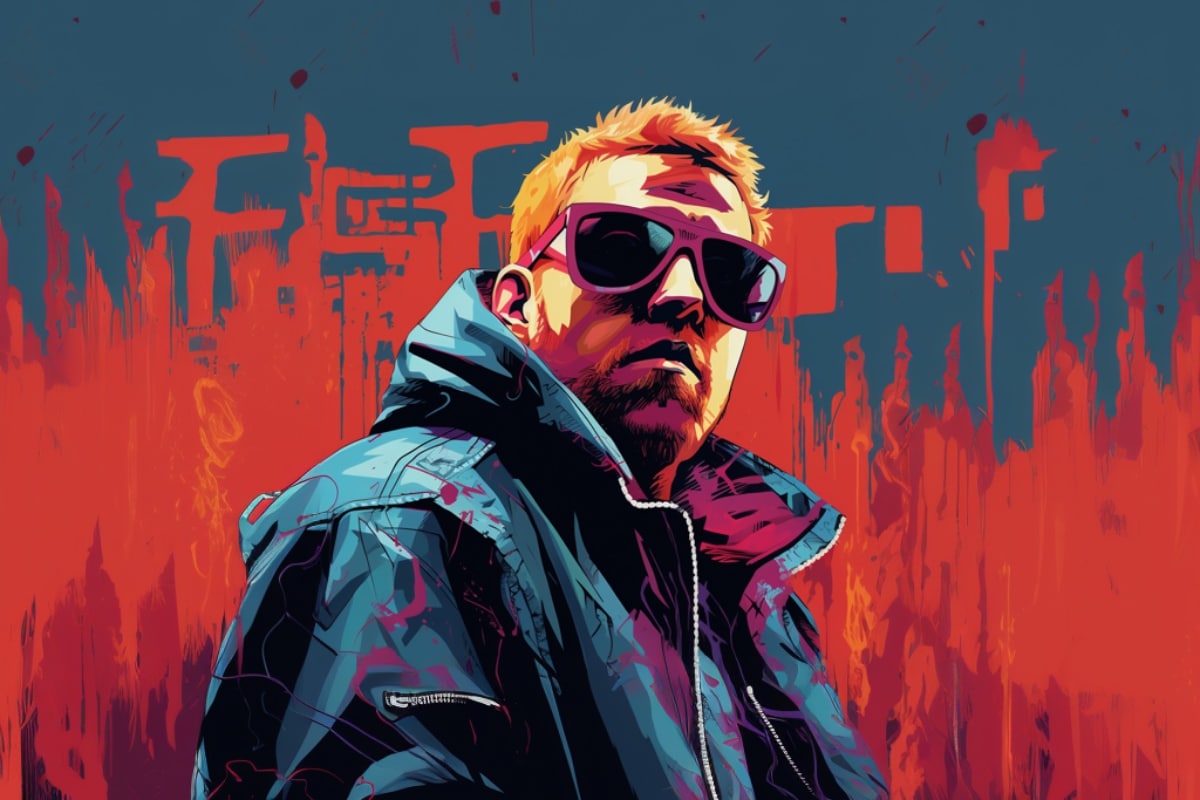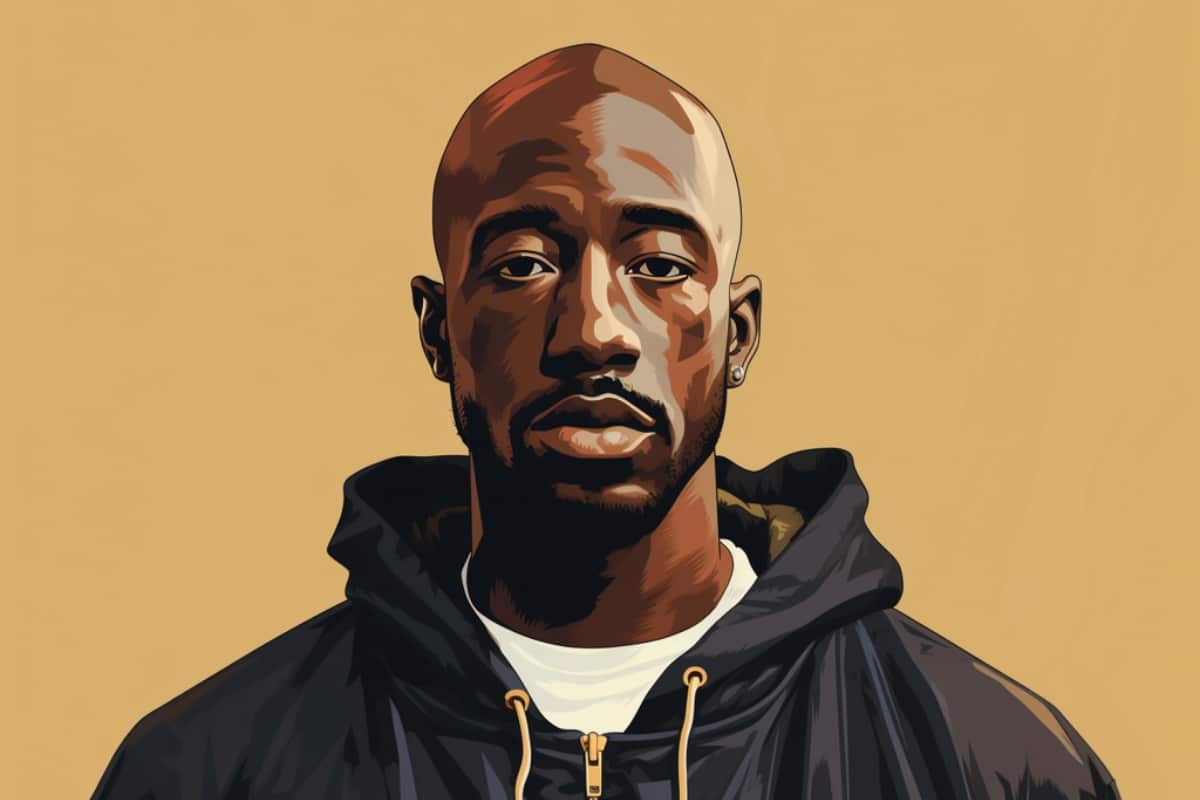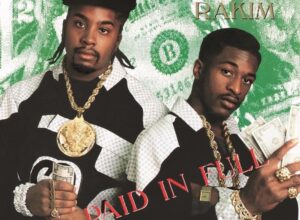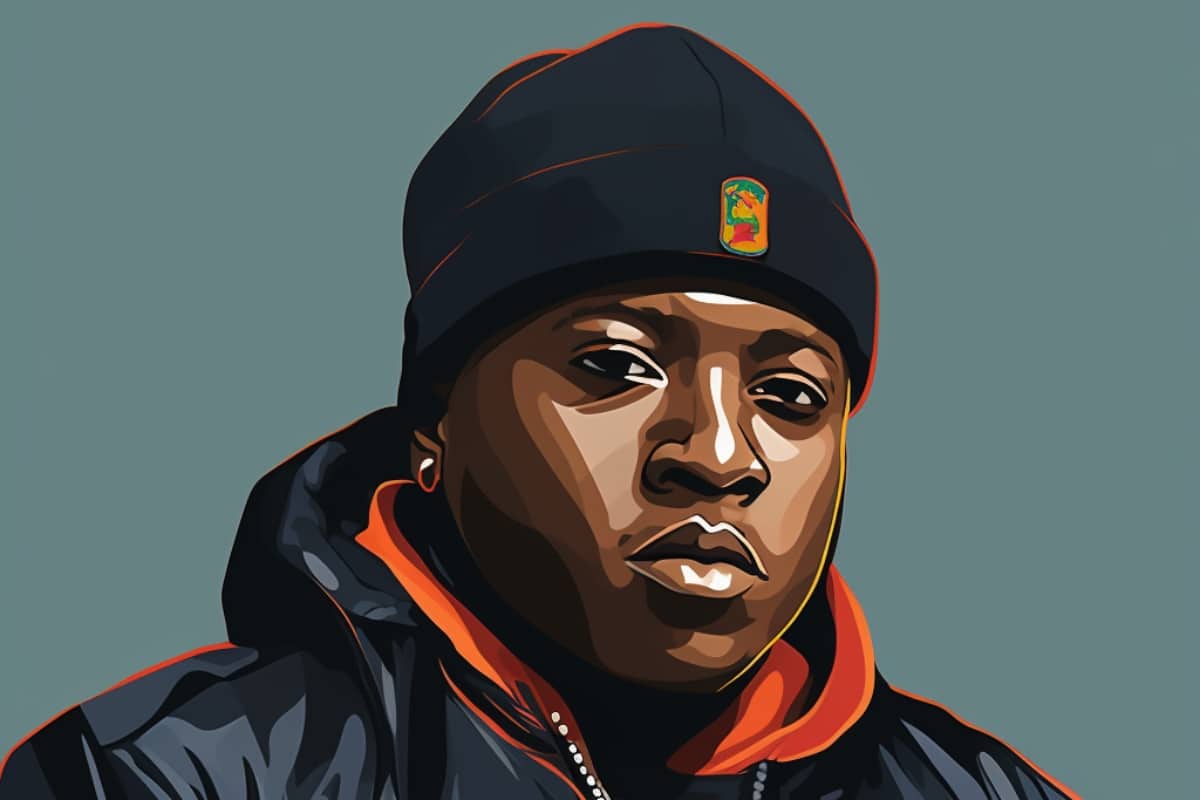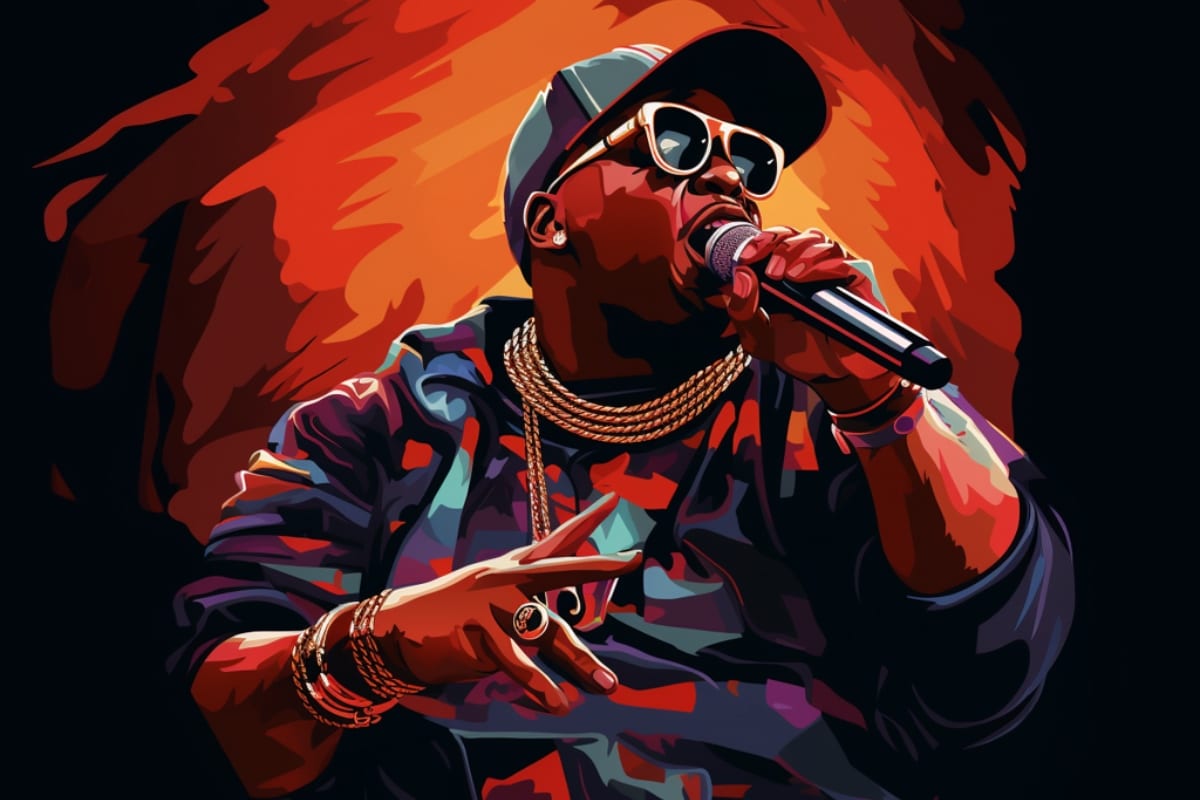Emerging at the dawn of the 21st century, Definitive Jux, a bastion of independent rap , became synonymous with innovation, defiance, and a relentless commitment to artistic integrity. While mainstream hip-hop pulsated with the beats of commercial success, Def Jux carved out a niche, championing a brand of rap that was introspective, experimental, and often a stark reflection of urban realism.
At the heart of Definitive Jux’s meteoric rise was its founder, El-P. A visionary artist in his own right, El-P’s sonic signature was laced with dystopian themes, abrasive instrumentals, and a deep-seated desire to push the boundaries of the culture. But Def Jux’s legacy isn’t anchored by El-P alone. The label became a crucible for some of underground rap’s most revered albums. Cannibal Ox’s The Cold Vein painted the streets of New York with lyrical brushstrokes, juxtaposing the city’s decay with a haunting beauty. Aesop Rock’s Labor Days and None Shall Pass stand as masterclasses in wordplay and narrative depth, while RJD2’s Deadringer showcased the expansive potential of instrumental hip-hop.
So let’s get into it. From Cannibal Ox’s genre-defining The Cold Vein to El-P’s solo debut, Fantastic Damage , and Aesop Rock’s magnum opus, Labor Days , we rank the top 10 best Definitive Jux albums of all time.
10. Cage — Hell’s Winter
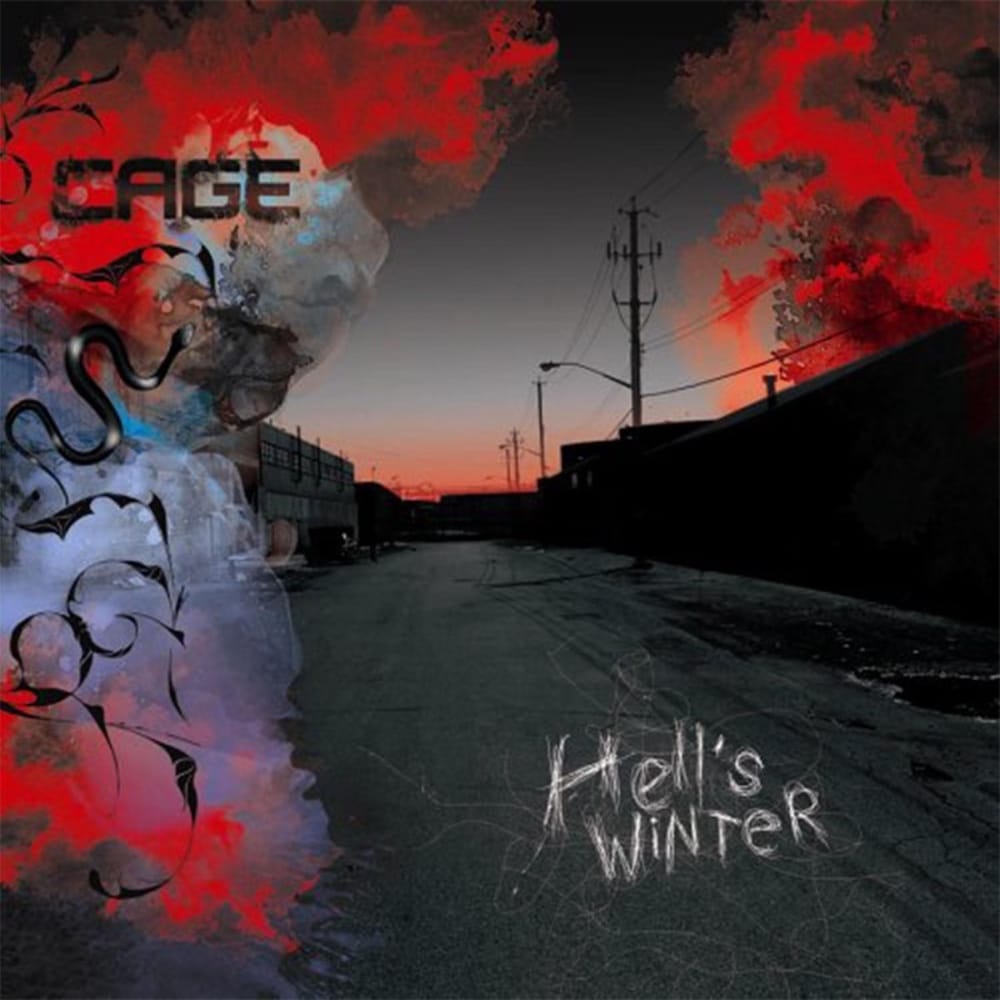
Released: September 20, 2005
Released in 2005, Hell’s Winter marked a significant turning point for Cage, both personally and artistically. Parting from the darker, more abrasive narratives that characterized his previous works, this album delved into deeply personal realms, revealing a more introspective side of the rapper. Working under the esteemed Definitive Jux label, Cage collaborated with producers like El-P and Blockhead, resulting in a sonic palette that combined gritty beats with ambient textures. Tracks such as “Shoot Frank” and “Perfect World” encapsulated Cage’s journey, juxtaposing raw storytelling with haunting instrumentals. In the canon of Def Jux releases, Hell’s Winter stands out for its stark vulnerability, a testament to the label’s willingness to embrace diverse thematic landscapes. While perhaps not the most commercially recognized on the roster, the album remains a crucial piece in the Def Jux puzzle, capturing a moment of profound evolution for Cage and the indie hip-hop scene at large.
9. Murs & 9th Wonder — Murs 3:16: The 9th Edition
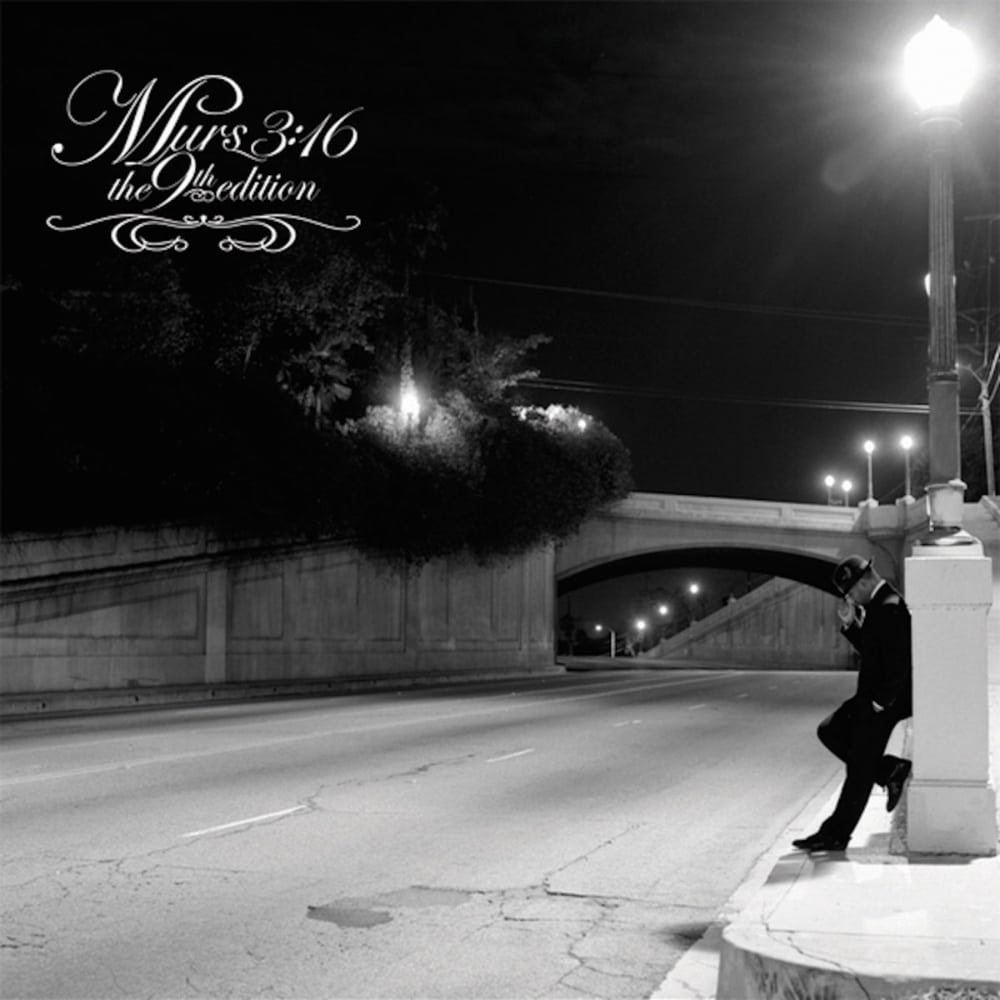
Released: March 23, 2004
Murs 3:16: The 9th Edition , the 2004 collaboration between West Coast wordsmith Murs and esteemed producer 9th Wonder, remains a pivotal gem in the Definitive Jux collection. During a time when hip-hop’s geographical boundaries were blurring, this album acted as a bridge, marrying West Coast narratives with soul-infused East Coast beats. It was a testament to the universality of hip-hop stories and the potential of cross-coastal collaborations. Murs’ effortless flow and introspective lyricism combined with 9th Wonder’s signature chopped-up soul samples created tracks like “Bad Man!” and “The Pain” that resonated deeply. Each song provided a vivid portrait of life, love, and struggle, echoing both specific LA vibes and broader urban experiences.
8. Del the Funky Homosapien — Eleventh Hour
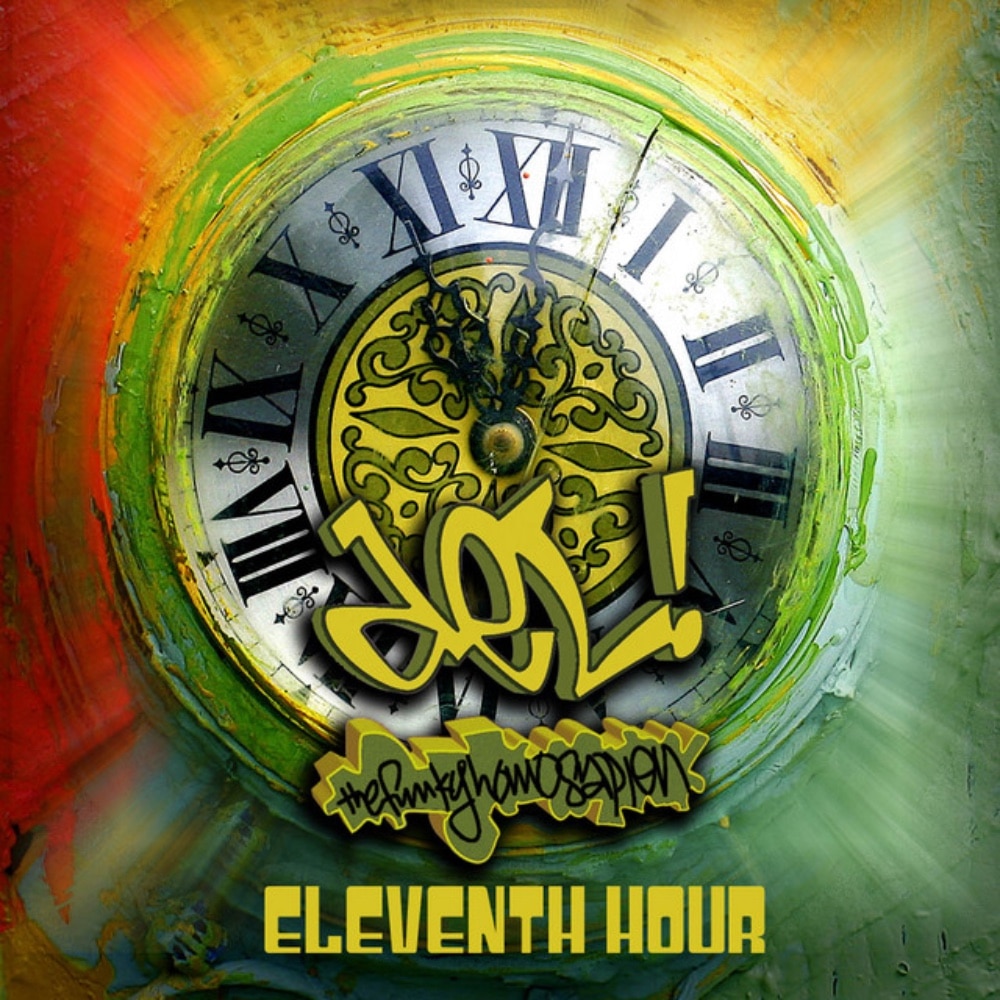
Released: March 11, 2008
Eleventh Hour marked Del the Funky Homosapien’s debut on the Definitive Jux imprint and was his first solo project in nearly a decade. Known for his earlier work with Hieroglyphics and the groundbreaking Deltron 3030 project, Del’s addition to the Def Jux roster was a significant coup for the label. This album showcased Del’s signature quirky lyricism, infused with sharp observations, humor, and a touch of the futuristic. It was a mature, more introspective iteration of the Oakland rapper, yet retained his idiosyncratic charm. With tracks like “Raw Sewage” and “Bubble Pop,” Del’s nimble wordplay danced over diverse beats, drawing listeners into his unique world. Historically, Eleventh Hour represented a moment where Del was resetting, re-evaluating, and making a statement of intent. While perhaps not as revolutionary as some of his previous work, the album cemented Del’s enduring relevance in the evolving hip-hop landscape and solidified Def Jux’s reputation for embracing the genre’s avant-garde pioneers.
7. RJD2 — Deadringer
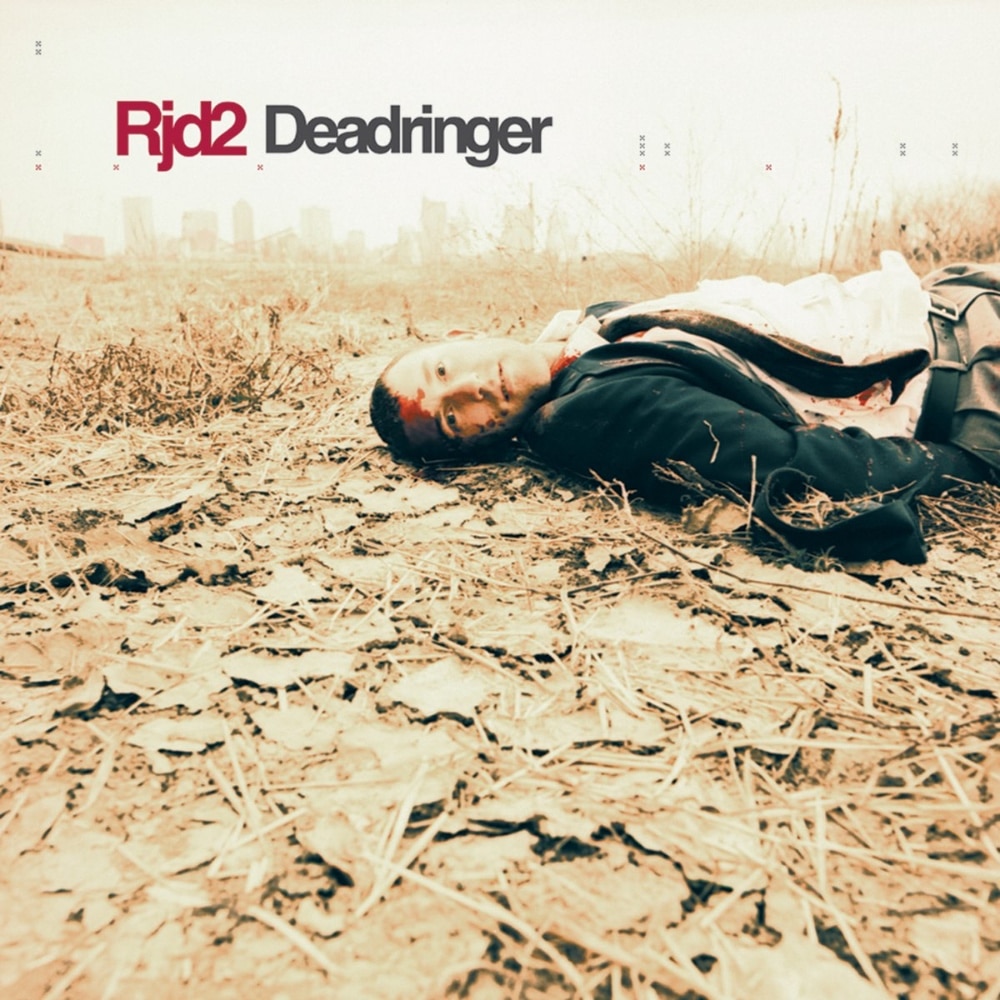
Released: July 23, 2002
In 2002, when Definitive Jux released RJD2’s Deadringer , the landscape of instrumental hip-hop witnessed a seismic shift. Here was an album that didn’t just contain beats; it wove intricate stories through a tapestry of samples, breakbeats, and turntablism. From the opening cinematic sweep of “The Horror” to the soulful hooks of “Ghostwriter,” RJD2 showcased an expansive palette that drew from funk, soul, electronica, and even rock. His meticulous crafting of sonic landscapes set a new standard, offering listeners a rich auditory experience akin to traversing diverse terrains. Deadringer wasn’t just an album; it was a statement that hip-hop instrumentals could be as evocative, emotional, and powerful as any track with lyrics. RJD2’s work here positioned him as a rightful heir to the lineage of pioneering producers like DJ Shadow, while also carving out a distinct niche for himself. Historically, this album not only solidified RJD2’s place among the production elite but also bolstered Def Jux’s reputation as a hub for cutting-edge, quality hip-hop.
6. Aesop Rock — None Shall Pass
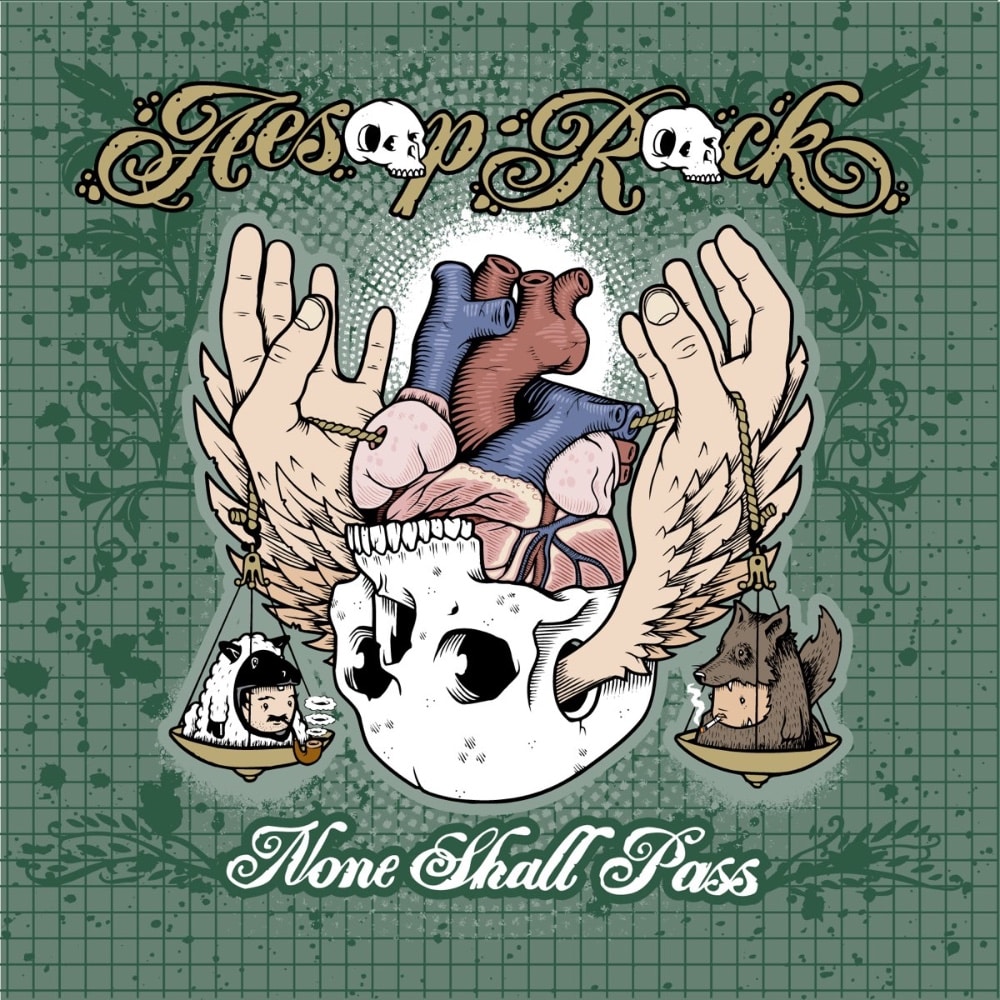
Released: August 28, 2007
When None Shall Pass was unleashed in 2007, it was clear that Aesop Rock had further refined his unparalleled lyrical prowess and idiosyncratic vision. Through Definitive Jux’s platform, the album marked a milestone not only in Aesop’s career but in the trajectory of underground hip-hop as well. Boasting dense, labyrinthine wordplay paired with production that effortlessly straddled the line between the surreal and the rhythmic, tracks like the titular “None Shall Pass” and “Coffee” resonated with both die-hard fans and newcomers to the Aesop Rock experience. One of the definitive aspects of this album was Aesop’s ability to weave introspective tales of personal struggles, societal observations, and abstract metaphors into a cohesive narrative. His distinct voice, both in terms of flow and tone, served as the perfect conduit for his stories. Additionally, collaborations with artists like John Darnielle of The Mountain Goats further underscored Aesop’s range and his willingness to push hip-hop’s boundaries. A product of its time, yet timeless in its offerings, the record stands tall as an essential piece in the jigsaw of 2000s alternative hip-hop, a beacon of lyricism and uncompromising aesthetics.
5. El-P — I’ll Sleep When You’re Dead
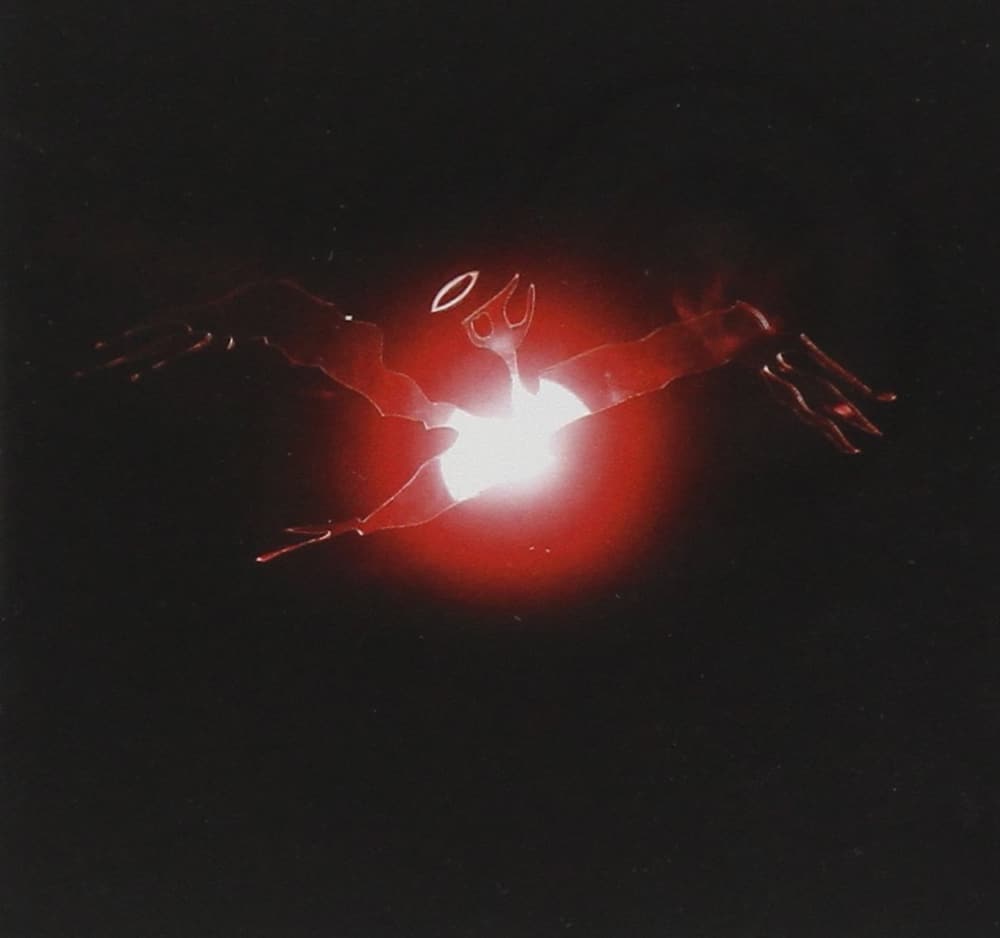
Released: March 20, 2007
I’ll Sleep When You’re Dead represents a crystallization of El-P’s gritty, dystopian aesthetic—a magnum opus in a catalog brimming with cutting-edge explorations. As Definitive Jux’s founder, El-P had always been at the forefront of underground hip-hop’s avant-garde, and with this album, he solidified his position as one of the genre’s most visionary craftsmen. The production on the album is dense and claustrophobic, creating a sonic landscape that is as chaotic as it is meticulously designed. From the foreboding opener “Tasmanian Pain Coaster” to the cataclysmic closer “Poisonville Kids No Wins,” El-P crafts a world that feels post-apocalyptic, tinged with both despair and a strange form of hope. This atmosphere serves as the perfect backdrop for his intricate lyricism, which touches on themes ranging from personal traumas to broader societal critiques. Beyond its individual merits, I’ll Sleep When You’re Dead holds immense significance within the underground rap scene. Released during a time of significant shifts in the music industry and the world at large, the album was a beacon for those seeking a more profound, challenging listening experience. It encapsulated the essence of what Def Jux stood for: pushing boundaries, challenging conventions, and creating art that refuses to be categorized. In a realm where many albums fade into obscurity, El-P’s opus continues to resonate, a testament to its enduring impact and relevance.
4. Mr. Lif — I Phantom
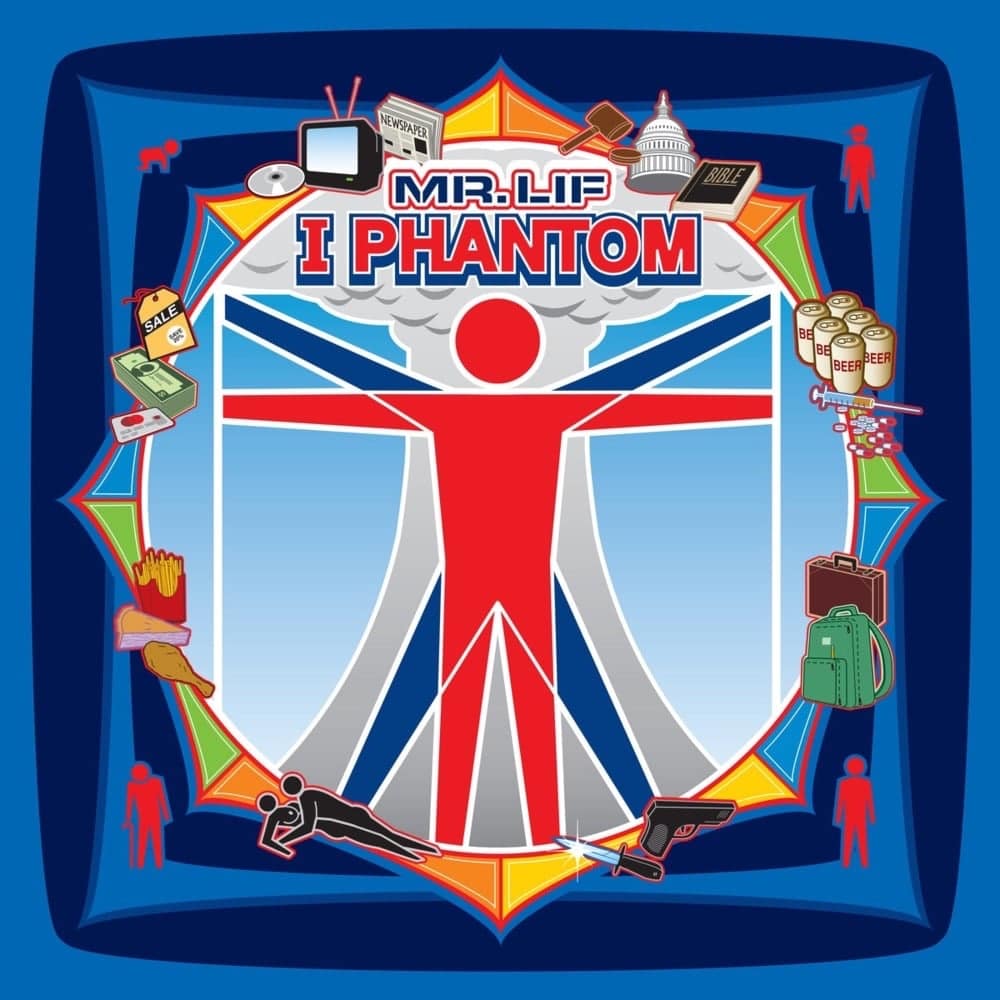
Released: September 17, 2002
Rooted deeply in the ethos of Definitive Jux, I Phantom deftly fuses the label’s signature avant-garde sensibilities with Lif’s razor-sharp lyricism. This isn’t merely an album; it’s a sonic journey into the facets of modern life. Mr. Lif delves into the struggles of the everyday individual—navigating societal pressures, economic traps, and the inherent complexities of urban existence. From the grind of the 9-to-5 in “Live From the Plantation” to the apocalyptic visions of “Earthcrusher,” Lif paints a bleak yet incredibly nuanced picture of contemporary society. A significant facet of I Phantom is its conceptual approach. The album functions as a narrative arc, taking listeners through the lifecycle of its protagonist, from birth to a harrowing vision of the world’s end. This linear structure, coupled with Mr. Lif’s vivid lyrical imagery, offers a listening experience that’s both cinematic and deeply immersive. Instrumentally, the album boasts a diverse range of beats, from the somber, introspective tones of “Success” to the aggressive, bass-heavy rhythms of “Return of the B-Boy.”
3. Aesop Rock — Labor Days
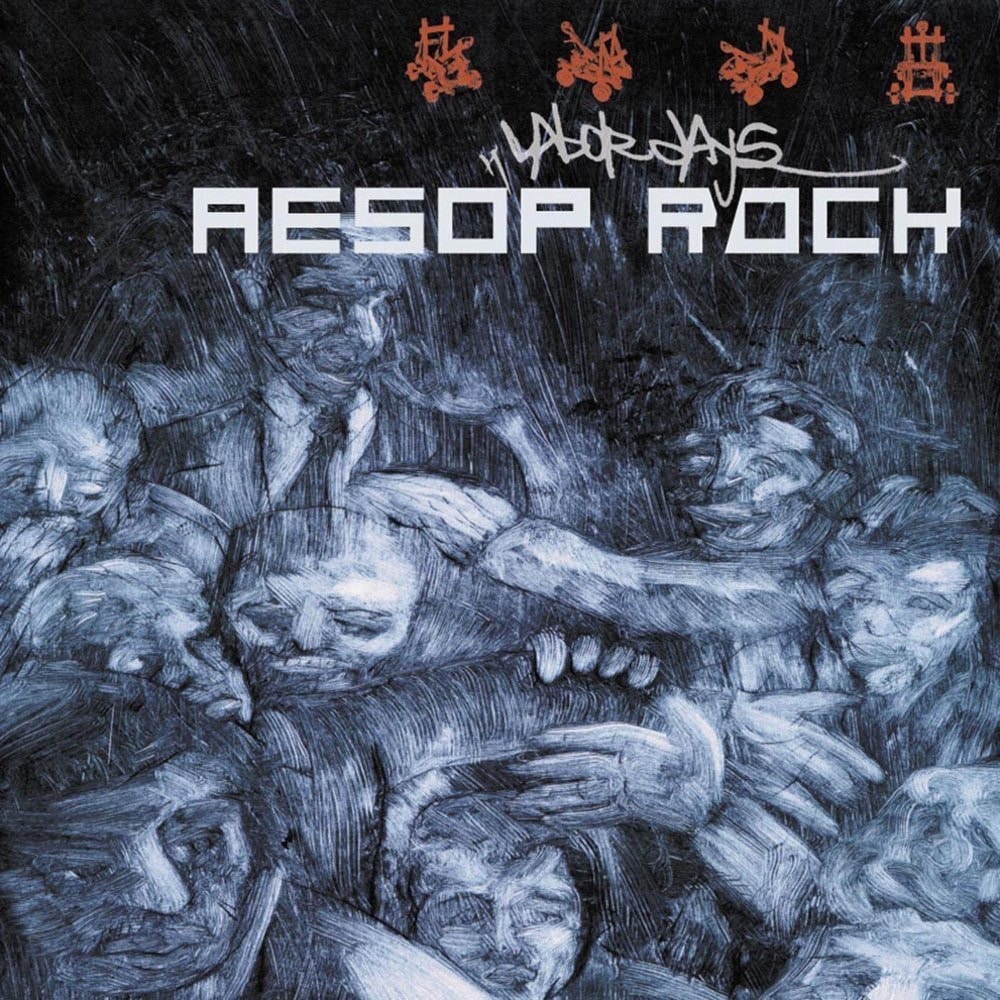
Released: September 18, 2001
Labor Days by Aesop Rock stands as a seminal release in the Definitive Jux canon, resonating as a magnum opus of intricate wordplay and socio-political musings. This album, without a doubt, propelled Aesop Rock into the higher echelons of underground hip-hop, highlighting his prowess as a wordsmith and his knack for dense, layered storytelling. From the opening strains of “Labor,” it’s clear that this is a departure from standard hip-hop fare. Aesop Rock delves deep into the human psyche, tackling themes of work, societal expectations, and the grind of daily life in the modern age. Songs like “Daylight” offer a paradoxical blend of hope and melancholy, while “No Regrets” stands as a poignant tale of following one’s passions despite adversity. Beyond the lyrical depth, Labor Days is also a masterclass in production. Blockhead’s beats, which dominate the album, are an impeccable match for Aesop’s dense lyricism—each track brimming with atmospheric samples and intricate drum patterns. The album’s influence is profound. It didn’t just define a moment in hip-hop’s evolution but also set a benchmark for future MCs in the realm of underground rap. In the realm of “conscious” hip-hop, Labor Days stands tall, challenging listeners to peel back its layers with each listen, discovering new insights and interpretations.
2. El-P — Fantastic Damage
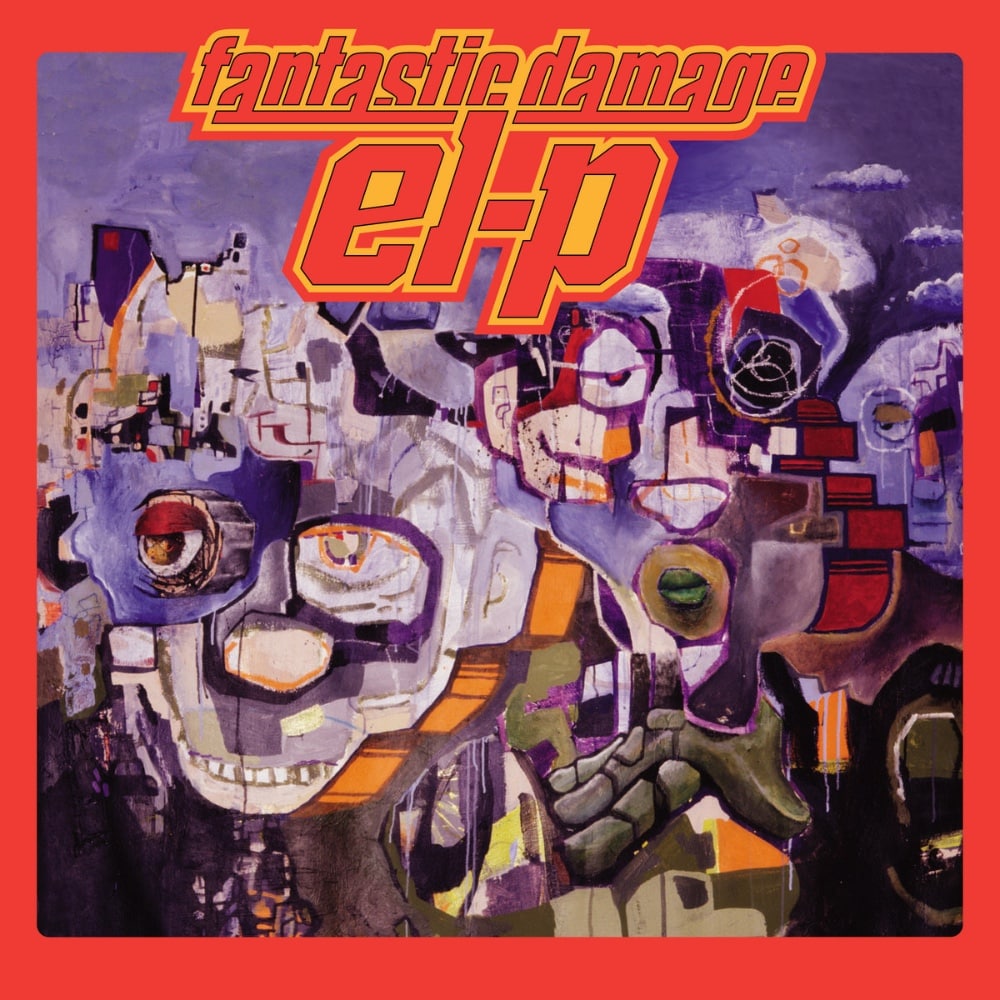
Released: May 14, 2002
To this day, Fantastic Damage remains a shining showcase of El-P’s unrelenting dedication to pushing boundaries, both sonically and lyrically. Often cited as a harbinger of the then-emerging alternative rap landscape, this album encapsulates a raw, dystopian view of the world, anchored by the rapper-producer’s incisive lyricism and a sonic palette that is as abrasive as it is mesmerizing. From the frantic synths of “Tuned Mass Damper” to the haunting melancholy of “Stepfather Factory,” Fantastic Damage offers a visceral journey through urban decay, societal dysfunction, and personal introspection. El-P’s production here is a beast of its own — a cacophony of discordant beats, eerie samples, and lo-fi effects that underscore the album’s post-apocalyptic ethos. But it’s not just about the chaos. Within the album’s abrasive exterior lies a heart, evidenced by tracks like “Deep Space 9mm” and “Truancy,” which meld introspective bars with frenetic instrumentals. Throughout, El-P’s voice serves as the guide, raw and unfiltered, confronting listeners with uncomfortable truths and a bleak outlook on the future.
1. Cannibal Ox — The Cold Vein
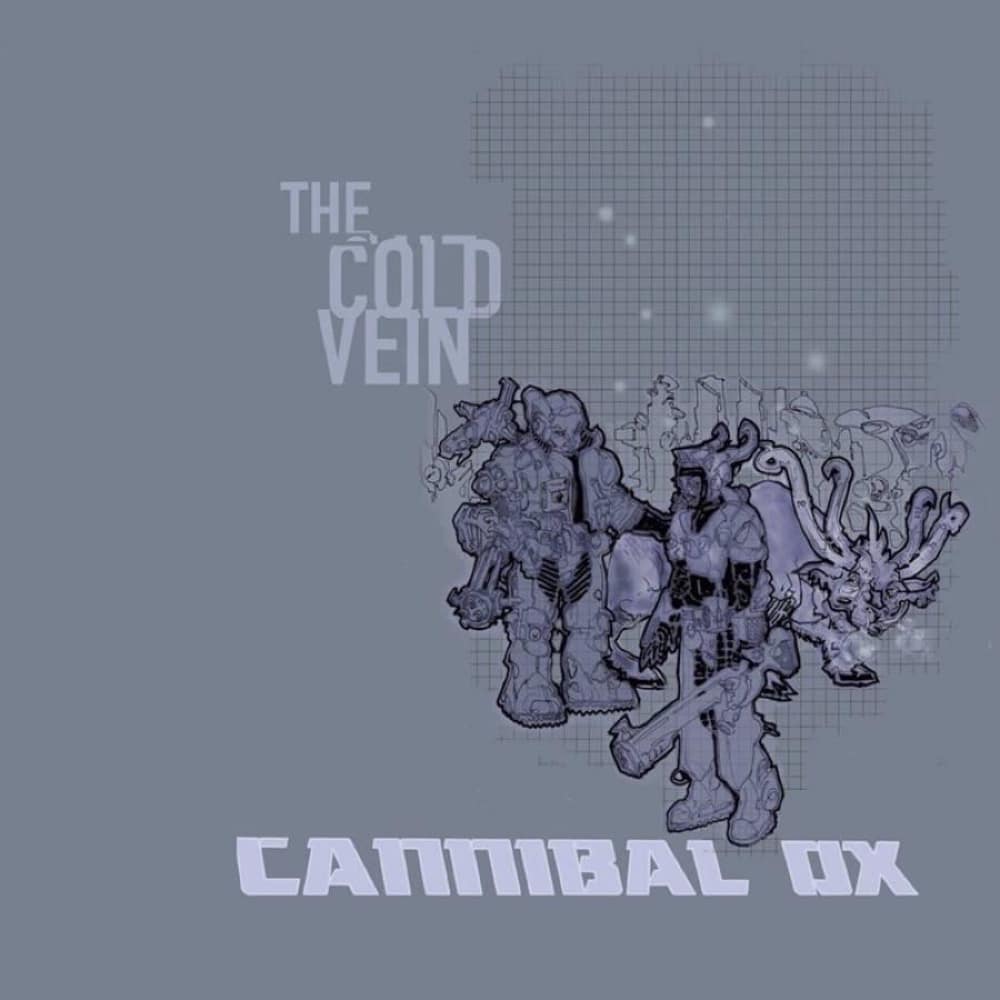
Released: May 15, 2001
The Cold Vein , the debut from Harlem duo Cannibal Ox, stands as one of Definitive Jux’s most iconic and influential releases. Crafted with producer El-P’s distinctive touch, the album is a swirling blend of gritty urban narratives set against a backdrop of atmospheric, otherworldly beats. It is not just an album; it’s a vivid portrayal of city life, juxtaposed with existential musings that touch on both the mundane and the profound. Vast Aire and Vordul Mega weave tales of New York’s harsh realities with poetic elegance. They’re lyricism on tracks like “Iron Galaxy” and “Pigeon” traverses through dark alleys and towering skyscrapers, creating an immersive tapestry of urban decay and hope. Their words are sharp, introspective, and often poignant, painting a cityscape that is both hauntingly beautiful and starkly realistic. El-P’s production on the album is a masterclass in experimental hip-hop. The beats are layered, dense, and often surreal, complementing the duo’s lyricism with a soundscape that oscillates between the ethereal and the abrasive. The synergy between the rhymes and the beats elevates the album into a realm where hip-hop transcends its traditional boundaries, delving deep into artistry and emotion. As an emblematic work of the early 2000s underground hip-hop scene, The Cold Vein remains a testament to the genre’s boundless potential and the visionary spirit of Cannibal Ox and El-P.
